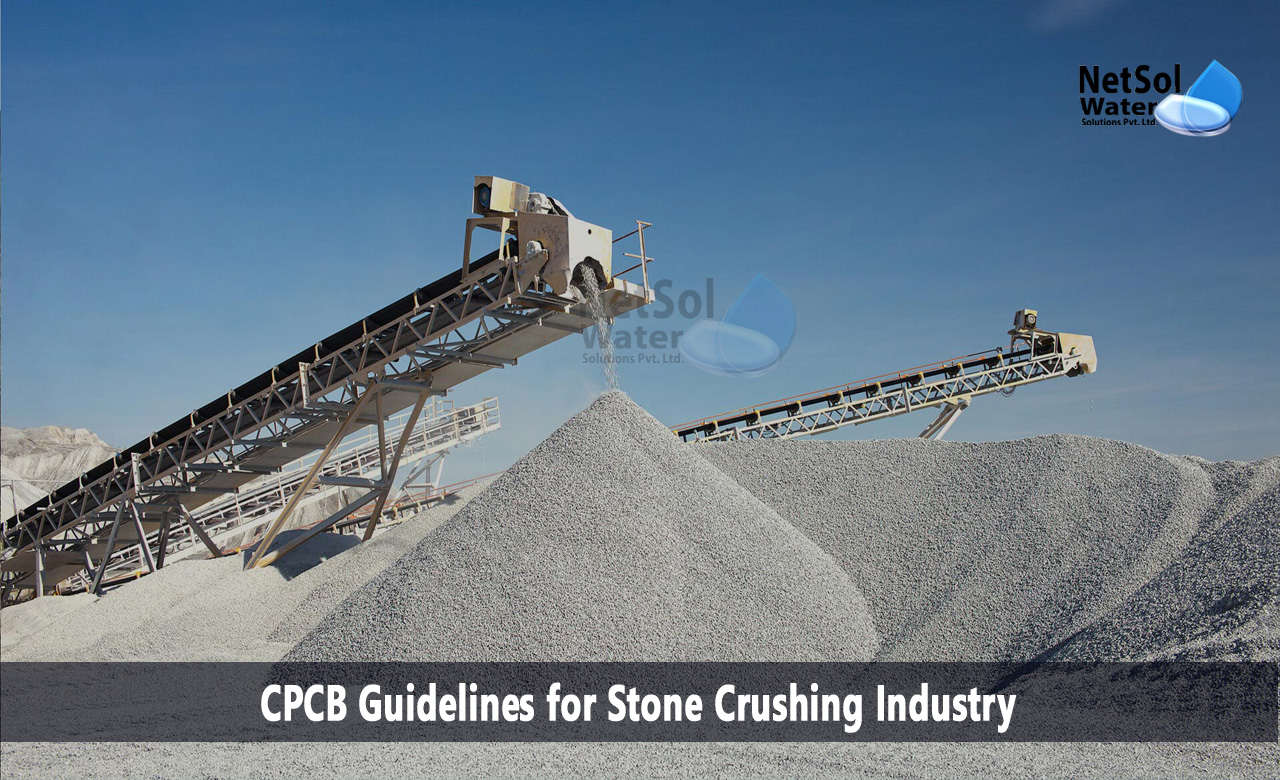Water covers more than 70% of the planet's surface and is the most abundant and valuable substance. More than 70% of the fresh water in liquid form in our nation has been altered to the point that it is unfit for human consumption.
Crushed stones in a variety of sizes serve as the raw material for several production activities, such as the construction of roads, highways, bridges, buildings, and canals, among others. In India, there are estimated to be about 12,000 stone crushing facilities. Although, these stone crushers are located in a critical socioeconomic area, they also produce large amounts of hazardous fugitive dust emissions.
Let’s understand the CPCB Guidelines for stone crushing industries.
Wastewater characteristics of stone crushing industry
Unfortunately, the business releases dust into the environment, which settles not only on the ground, trees, and plants, but also on surface waters that are utilized for drinking and other household tasks.
While, the alkalinity and mineral content of dusts raise the pH of the water, the mineral content of cement mud slows down plant growth. For the same reason that rocks and dirt can alter pH, dust and other minute airborne pollutants can also. Fine particles may contain chemical or natural substances that, when dissolved in water, can transform back into weak acids or substances, with alkaline characteristics.
CPCB Guidelines for stone crushing industry
|
S. No. |
Parameters |
Standards Limiting Concentration in mg/l, except for pH |
|
1. |
Suspended Particulate Matter |
A stone crushing unit's suspended particle matter, must not be more than 600 micro-grammes per cubic metre, when tested between three and ten metres from any processing equipment. |
Evaluating the water's quality
Water quality refers to the state of the water, which encompasses its chemical, physical, and biological features, typically identifying whether it is suitable for particular activities like swimming or ingestion. Surface water and groundwater characteristics including pH, electrical conductivity, turbidity, alkalinity, total hardness, and chloride should be periodically tested.
Conclusion
Wet processing is necessary because some raw materials have contaminants in the form of tiny particles. Cleaner end products, increased screening capacity, and lower dust emission from the processing plant, are benefits of wet processing. The drawback is that wastewater needs to be cleansed before it can leave the processing facility.
There are many options for wastewater treatment in technical stone quarries, including centrifugal sedimentation in hydrocyclones and centrifuges, mechanical classifiers and thickeners, gravity sedimentation in settling basins, and filtration with cake filters. The best option for the limited water supply is water treatment and recycling.
How can we assist?
Netsol Water offers a wide range of wastewater treatment solutions, such as water softeners, wastewater treatment plants, sewage treatment plants, water treatment plants, RO Plants, as well as effluent treatment plants for various industries, including stone crushing.
Netsol Water is Greater Noida-based leading water & wastewater treatment plant manufacturer. We are industry's most demanding company based on client review and work quality. We are known as best commercial RO plant manufacturers, industrial RO plant manufacturer, sewage treatment plant manufacturer, Water Softener Plant Manufacturers and effluent treatment plant manufacturers. Apart from this 24x7 customer support is our USP. Call on +91-9650608473, or write us at enquiry@netsolwater.com for any support, inquiry or product-purchase related query.



